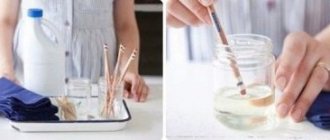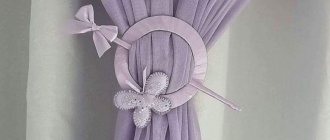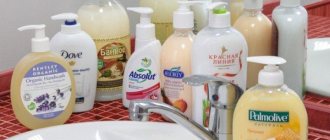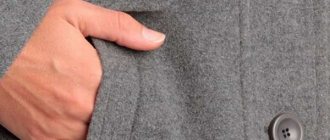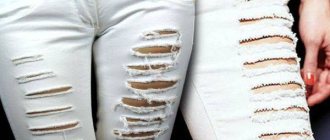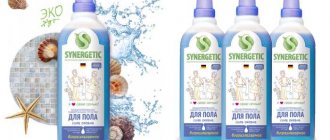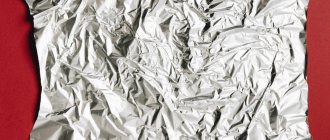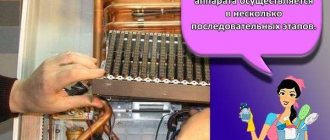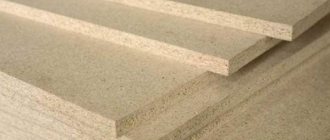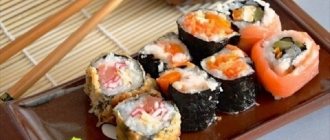Most dishwashing liquids contain synthetic substances that are difficult to wash off from the surface and can cause allergies.
To protect your family, you can create their natural analogue from soap, soda, coffee and other harmless ingredients.
Homemade pastes and liquids are suitable not only for dishes, but also for stoves, tiles, faucets, microwave ovens and other kitchen surfaces.
We'll tell you how to make dishwashing liquid with your own hands below.
Why prepare your own cleaning products?
The main active component of dish gels is synthetic surfactants (surfactants) .
Compared to regular soap, they dissolve grease better, do not leave streaks, and do not lose effectiveness in cold and hard water.
But high surface activity complicates the removal of surfactants from dishes. Even if objects seem clean, a thin film remains on them, which, along with food, passes into the digestive tract.
Natural products, such as soap or soda, have less affinity for the surface, so they are easily washed off from dishes .
The composition of industrial products is described only in general terms (for example, “non-ionic surfactants”, “anionic surfactants”, “preservative”, etc.), therefore the presence of allergens in them cannot be excluded. Homemade gels, as a rule, have a simpler set of components. If you are allergic to any of them, you can replace it or choose a different recipe.
How to make your own dish detergent?
Manufacturers of household chemicals offer a huge selection of different products. But for washing dishes, many people deliberately choose “chemical-free” products. There are many reasons for this, for example, that particles of an industrial product can enter the body or cause allergies.
There are a lot of recipes on how to make gel, paste or dishwashing liquid at home. You can prepare them from available ingredients that can be found in every kitchen.
Features of application
When cleaning with homemade gels, you need to consider the following nuances:
- To increase the emulsifying properties of natural ingredients, you need to wash dishes in hot water. If its temperature is below 400C, then greasy marks and stains may remain on the surfaces.
- If the water hardness (pH) is high, you need to use a product with soda. To soften old grease, you can soak the dishes in hot water with 2-3 tsp. sodium bicarbonate.
- Baking soda, salt, and other abrasives should not be used to clean items with thin coatings (such as gold plated).
- It is recommended to use soap and ammonia gels only with gloves.
- Teflon coated surfaces should not be exposed to acids or abrasives. Before washing, they need to be soaked in warm water with soda, and then gently rubbed with a paste of laundry soap.
- Aluminum cookware does not tolerate prolonged soaking, boiling in soda, or the action of alkalis and acids. If improperly cleaned, a matte layer of oxides will form on its surface. This effect also has a positive effect: less carbon deposits form on highly oxidized dishes.
- Vinegar and lemon are not used to clean copper cookware.
Pots, baking dishes and frying pans should only be washed after they have cooled completely.
Traditional recipes without chemicals
To clean dishes, you can use readily available, inexpensive products that give a good effect when washing surfaces in contact with food.
Dry mustard
Mustard powder is an affordable eco-friendly product for washing dishes, including children's dishes. It effectively copes with various types of dirt - grease, dried food residues, etc.
Procedure:
- Hot water (3-5 liters) is filled into a basin.
- Pour mustard powder (3 tablespoons) into it.
- Stir.
- Soiled kitchen utensils are immersed in water and left for 10-15 minutes.
- Using a sponge, wash the dishes.
- Rinse.
Lemon
Fresh lemon juice has the ability to break down fat, fight odors, and even cope with limescale and rust stains.
In order to wash dirt from frying pans and other utensils,
this option is suitable:
- cut off a slice of lemon;
- dip lemon in salt;
- rub the dirty dishes with a slice;
- rinse the surface with water;
- repeat the lemon treatment;
- After finishing cleaning, wipe the surface with a paper towel.
Lemon can be used not only for routine dishwashing, but also for processing cutting boards. To do this, squeeze the juice out of the fruit and apply it to the entire surface that needs cleaning. After 20 minutes, the board can be washed with water.
If you need to eliminate an unpleasant odor from the surface of a cutting board, for example, left after fish, the surface should be wiped with lemon and soda. After treatment, rinse under the tap.
Baking soda
Baking soda is a universal remedy that will help you deal with dirty dishes. It cleans some stains even better than store-bought gels , allowing you to effortlessly remove tea stains and lipstick marks from cups.
Baking soda not only cleans well due to its abrasiveness, but also disinfects. Soda can also cope with an old layer of fat, but it is advisable to first soak such dishes in a soda solution, and only then scrub them.
Baby soap with soda
To prepare a paste of soap and soda you will need the following ingredients:
- soda (0.25 kg);
- baby soap (1 bar);
- water heated to warm temperature (2 glasses).
Preparation procedure:
- Grate the soap.
- Place soap shavings into a bowl.
- Add a glass of water.
- Beat with a fork or mixer until the consistency becomes homogeneous.
- Add the rest of the water.
- Add baking soda, continuing to whisk until smooth.
You need to store homemade soap paste covered in a glass jar.
Soap, baking soda and vinegar
To process dishes using improvised means, a recipe based on laundry soap can be used. The consistency of the resulting product is a liquid preparation, which is convenient to apply using a sprayer.
You need to prepare the following ingredients:
- dark laundry soap, without additives (1/4 bar);
- soda (1 tbsp);
- vinegar (1 tbsp);
- essential oil with a pleasant citrus or pine aroma (a few drops);
- water (1 liter).
Procedure:
- Grate the soap.
- Dissolve soap shavings in water.
- Add remaining components.
- Mix.
- Pour into a spray bottle.
The most convenient way is to dissolve soap in water using a water bath.
Baking soda and hydrogen peroxide
A folk recipe based on available ingredients will help you wash dirty dishes, stained baking sheets and the stove.
To work you will need the following ingredients:
- hot water (1 glass);
- soda (1 tbsp);
- hydrogen peroxide (1 tbsp).
All components are combined and the mixture is poured into a spray bottle. To achieve the result, you need to spray the product onto the surface and leave it for 10 minutes. Afterwards, rinse with water.
Soap with glycerin
For washing dishes, you can prepare a simple product that will not only cope with dirt, but also will not dry out the skin of your hands.
You will need the following components for this:
- dark laundry soap, without additives (1/4 piece);
- glycerin (5 tbsp.);
- essential oil (a few drops);
- alcohol solution of calendula (1 tbsp.);
- water (1/2 cup).
Preparation:
- Grate the soap.
- Place in a water bath, adding water to the chips.
- Stir the solution until the soap is completely dissolved.
- Pour in glycerin.
- If desired, you can add a few drops of essential oil and mix.
- Add calendula solution.
- Mix again.
After cooling, the mixture will thicken slightly, turning into a gel form.
Pros and cons of homemade gels and pastes
The benefits of homemade dishwashing remedies are:
- simple composition;
- low cost;
- the ability to select a convenient consistency;
- harmless for children and allergy sufferers.
The disadvantages include the following aspects:
- the need to combine several recipes for severe or old stains;
- labor-intensive preparation;
- high cost of funds;
- short shelf life;
- poor foaming, especially in cold water.
The features of each composition are presented in more detail below:
| Components | Advantages | Flaws |
| Laundry soap | Suitable for all types of dishes, does not cause allergies | Has an unpleasant odor, dries the skin very much, is ineffective in hard and cold water |
| Soap + soda | Maintains effectiveness in hard water and has an abrasive effect | Not used for dishes with gold plated or thin coatings Ready-made products have a strong aroma Mustard can cause skin irritation |
| Mustard | Removes grease, gently cleans off fresh deposits, does not leave microdamages on the surface | |
| Soap + coffee + mustard | Combines abrasive and anti-greasy properties | |
| Vinegar | Indispensable for cleaning dishes from scale and mold | Does not affect fat Does not apply to washing Teflon, aluminum, copper |
| Lemon | Has a pleasant smell, used for delicate washing (for example, porcelain and fine glass) | Not suitable for coatings that are not resistant to acids May cause allergies (only during washing) |
| Ammonia | Effective against old fat and carbon deposits | It has a pungent odor; you need to protect your hands when using it, and when washing and cooking for a long time, protect your eyes and nose. |
What to wash dishes with?
We have a wide choice: all kinds of household chemicals, dishwashers, and, of course, you can turn to natural products. Each option has its pros and cons, the choice is up to you.
When choosing a dishwashing detergent, pay attention to the composition.
Dish detergents (especially if there are children in the house) should not contain the following components:
What can replace detergent?
Despite all the practicality and effectiveness of modern detergents, they can be replaced with natural products that can be found in every kitchen.
Soda is the most proven remedy that can cope with almost any type of contamination, even in cold water. It washes off well from glass and ceramics, but can get into scratches on plastic dishes or scratch thin enamel.
Coarse salt can remove fat, but it is difficult to get rid of, for example, burnt food.
Mustard powder perfectly washes burnt food and removes grease from pans well.
4. Laundry soap
This should be a brown bar of laundry soap without chlorine or other additives. Soap washes away many types of dirt and is easily washed off under running water.
5. Citric acid
Citric acid also perfectly removes grease and burnt food residues. It helps to lighten the child’s plastic dishes if they are darkened by fruit puree. Citric acid is synthesized in the body, so it is completely safe for the body.
Children's dishes and dishwasher
Should you wash baby dishes in the dishwasher? Yes, it is very convenient, but there are several disadvantages.
It is best to use detergents made specifically for children, for example, from the Krestovnikov Brothers Factory for washing children's dishes.
Source
Useful tips
Fans of homemade dishwashing products will find the following tips helpful:
- To eliminate the smell of laundry soap, you should replace the hot water in the recipe with an infusion of pine needles or dry zest.
- If home remedies are used occasionally, then you don’t have to prepare a gel from soda or mustard, but pour the dry powder directly onto a sponge.
- To quickly wipe off carbon deposits or a thick layer of fat, you need to boil the dishes with grated soap, soda and PVA glue (30-40 g of each component per 1 liter of water).
- When washing lightly soiled glassware, you need to soak it in warm water with the juice of half a lemon, and then rub it with a clean sponge without detergent.
Before boiling and soaking, be sure to remove the wooden handles from the dishes.
Natural remedies
Homemade dish cleaning products will help get rid of any biological contaminants. In this case, washing it will be completely safe and environmentally friendly.
Laundry soap
There are many home remedies for washing dirty dishes. The main ingredient of many of them is laundry soap, which is used in combination with various components.
You can make dishwashing gel from laundry soap. The simplest recipe:
- Crumble ¼ piece of dark soap through a grater.
- Place the shavings in a bowl and place them in a water bath.
- Add 110 ml of water and melt the crumbs.
- Pour glycerin (5 tbsp) into the composition so that it does not dry out your hands.
The product will be liquid for some time, but as it cools it will thicken, taking on a gel-like consistency. To improve the smell, you can add a few drops of any ether.
There is another recipe that requires more ingredients:
- Crumble the soap (half a bar) in any convenient way.
- Heat water (1 liter) and dissolve the dough in it.
- Let it cool. Add soda and mustard powder (3 tablespoons of each component), mix until smooth.
- Add ammonia (4 tablespoons) and pour into a glass jar with a lid.
You can use the homemade product after 2 hours.
Advice! It is best to pour in ammonia and package the composition outdoors.
Paste
The concentrated paste will not only help wash away grease in cold water, but will also rid dishes of plaque and burning. The cooking recipe is as follows:
- Pour a crumb of laundry soap (20 g) with water (210 ml) in a suitable container and place on the stove.
- Let the crumbs dissolve completely. The mixture should not boil. Then pour another 1000 ml of slightly warmed water into it.
- When the solution has cooled, add soda ash and mustard (3 tablespoons each).
- Stir until smooth and add a few drops of essential oil for aromatization.
To keep the paste from drying out, any jar with a tight-fitting lid is suitable. Shelf life – 14 days.
Attention! You need to wear gloves when using the paste, as it greatly dries out the skin on your hands.
Souffle
You can also make your own homemade souffle cleanser. Preparation method:
- Pour soap crumbs (1/2 cup) into boiling water (210 ml).
- Stir and beat with a blender until high foam.
- When the mixture has cooled a little, add soda to it (1/4 of the pack).
- Mix again and immediately pour in any essential oil.
- Then beat the mixture again until it becomes fluffy.
The finished soufflé is kept in a plastic container under a tight lid. After cooling, the product becomes dense, and for washing it is convenient to dose it with a teaspoon.
If desired, you can use baking soda to wash dishes. In 1 liter of warm water you need to stir 1 tbsp. l. powder and use the resulting solution for its intended purpose.
Soda + peroxide
To make this detergent, the simplest ingredients that can be found in every home are suitable. This is baking soda and hydrogen peroxide.
- Pour 2.5 tbsp into boiling water (175 ml). l. soda, stir.
- Add hydrogen peroxide (2.5 tbsp) to the composition.
- Pour the solution into a glass bottle with a cap.
Peroxide can be replaced with the same volume of 9% table vinegar.
Apply the finished composition to oily surfaces and wait a few minutes. Then the dishes must be rinsed under warm running water.
Mustard powder
Dirty, greasy dishes can be washed with dry mustard powder, but for more convenient use, dilution with water is allowed:
- Heat water (1 l) until warm.
- Stir mustard powder (2 tbsp) in it until foaming.
The product is ready for use. It copes well with grease on plates and helps other contaminants completely dissolve.
If you don’t like the liquid format of the detergent, you can make a thicker version:
- Bring water (200 ml) to a boil and stir in mustard (1 tbsp) and soda (1 tbsp).
- Mix the product until smooth.
The resulting composition copes well with burnt food residues. But it removes fatty stains much worse.
After washing, the dishes must be rinsed thoroughly under running water. Due to the mustard, the product has an unpleasant odor, which is neutralized by baking soda.
Dry mustard is recommended for cleaning the dishwasher:
- Mix mustard powder (1/2 cup) with borax in glycerin (1/2 cup) and soda ash (1 cup).
- Pour 1 tbsp for each cycle. l. the resulting mixture.
Advice! If the water is too hard, add salt to the composition.
Coffee + soap + mustard
To make your own dishwashing detergent, you can also use coffee in combination with other available ingredients.

